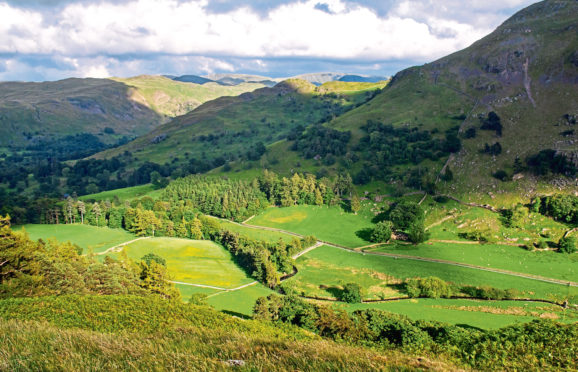A levy on airlines or fossil fuel companies could be introduced to help pay for a huge boost to woodland planting, government climate advisers say.
The committee on climate change made the recommendation in a new report calling for major and urgent changes to how land is managed to help the UK reach its legal target to cut emissions to net zero by 2050.
The first in-depth report on land use from the committee calls for a fifth of agricultural land to be taken out of production and freed up for natural methods of storing carbon, such as more woodlands and trees.
It also argues that encouraging people to cut the beef, lamb and dairy they eat by a fifth will help cut greenhouse gases and free up land for storing carbon.
Around 30,000 hectares or 100 million trees a year need to be planted from 2023 up to the mid-century, a significant increase on today’s levels of planting, which were around 13,000 hectares last year.
A system similar to the subsidies which have boosted renewable energy in recent years – with auctions for contracts for planting and guaranteed long-term payments for land managers – could deliver the required increases.
Low-carbon farming methods also need to be encouraged, such as feeding cattle supplements which cut their methane emissions, along with cutting food waste by a fifth.
The changes outlined in the report would cost around £1.4 billion a year in private and public funding up to 2050, but would deliver £4bn in annual benefits, the committee said.
Some 12% of the UK’s total greenhouse gas emissions came from the way land is used in the country in 2017, but with the right support for farmers and land managers, that could be cut by almost two-thirds by 2050, it said.
Scotland’s farmers’ union president Andrew McCornick said: “At farm level, positive uptake of efficiency measures around livestock and crop production, soil testing, nutrient management, energy crops and the integration of woodlands into farming businesses to create shelter belts or a new income stream will all have a greater role to play alongside the continued provision of safe, healthy, local food.
“And the adoption of scientific advances, much of it led by Scotland’s world-leading research institutes, will maintain the progress.”










